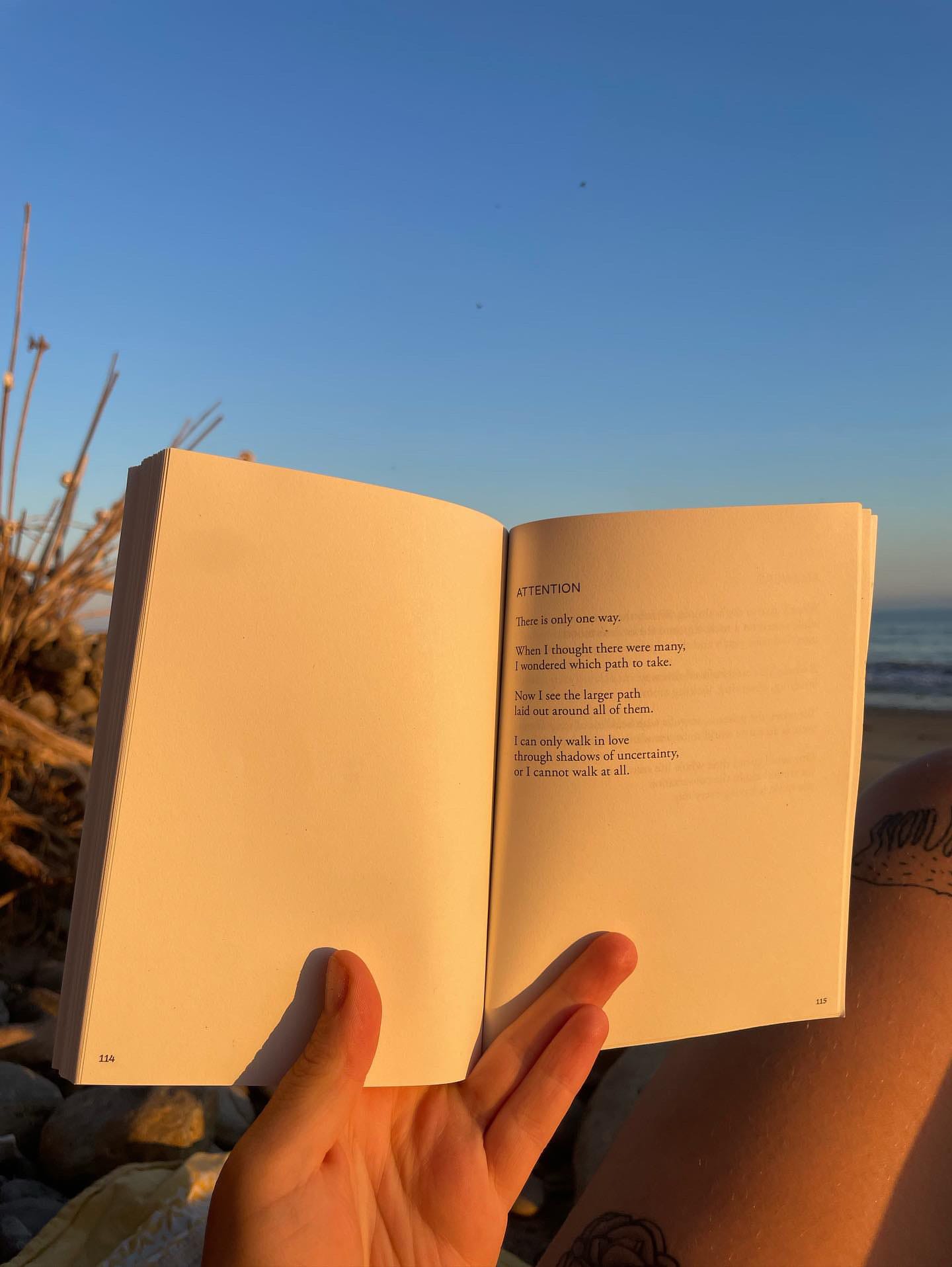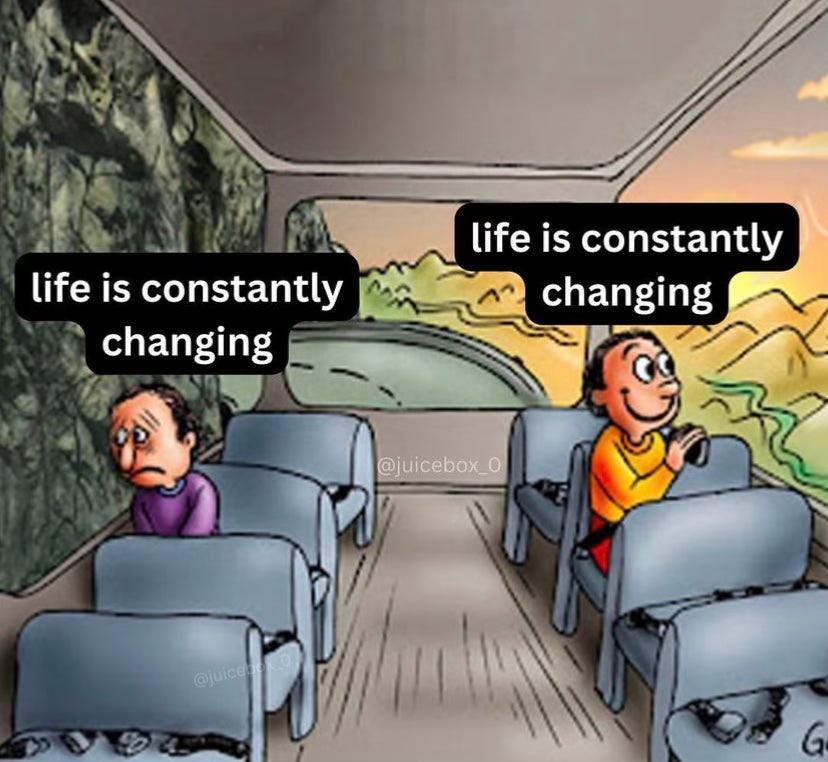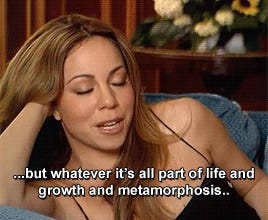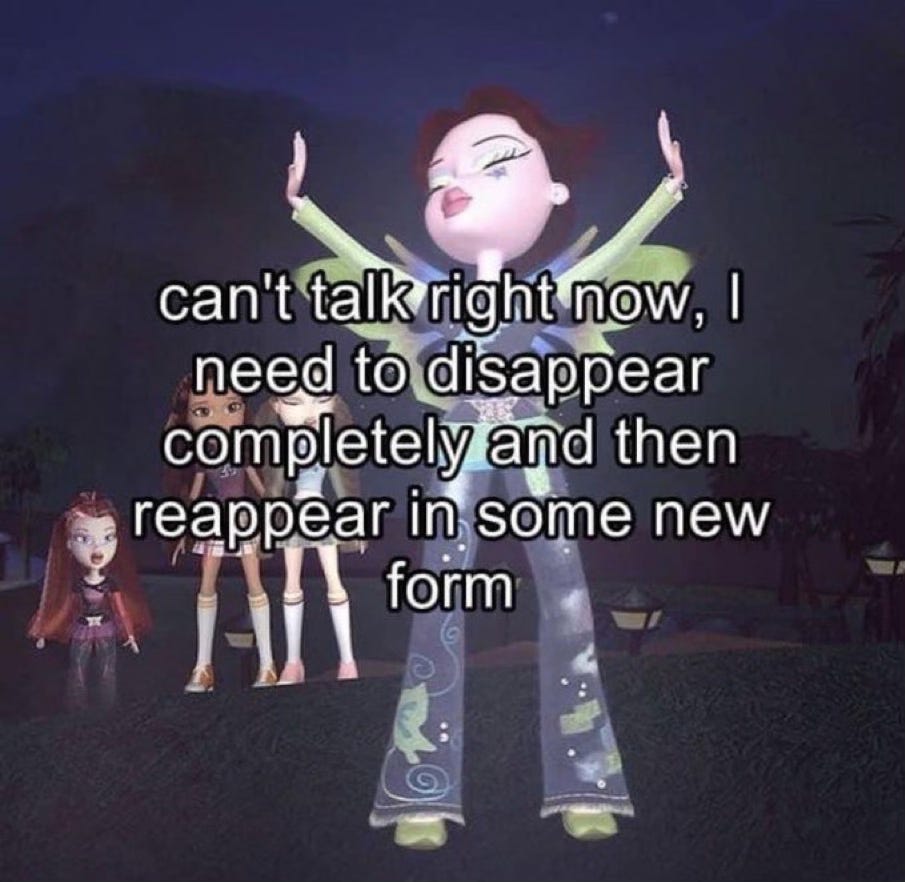Finding the Way
Becoming something on the way to nothing & 2 Bay Area shows
These days I am looking for answers in humble places. Like, the dirt on my shoe. Like, my breath. It’s springtime in the Bay Area, which means the yards are brimming with flowers. Some fences have enough star jasmine to stick your face into. I do, and hope to not be stung by a bee.
I find myself circling over the same sorts of questions that I have for the last year. Who am I? What do I want? And on.
Months of meditating for 10-15 minutes a day has allowed me to see myself for a single second. And by a single second, I mean a single second. I don’t have perfect self-control. Sometimes all I can do is note my anger, boredom, or vapid thinking about clothes. Sometimes the best I can do to interrupt my reaction to a text message is turn off my phone.
Are these seconds of pausing worth the effort? It takes time to meditate (and journal, and exercise.) Is all the time worth it? Well yes, considering that when separated from these habits, I could barely see myself through whatever emotion I was caught in. There was desire, and somewhere amidst it, there was me.
Each tiny step outside the old narrative causes the path to grow. It keeps being created, even in a single breath. When turning my phone off so I don’t respond cuttingly to a text, I’m shown another way is possible. It may not be the perfect way. I still see the knives that I throw at others, and the ones thrown at me that I jump to catch. But it’s one step forward on a gentler path.

Part of “seeing myself” has been seeing my relationship to making.
In the last two years, I accomplished a number of long-standing goals. I graduated undergrad after years in community college or totally out of school. A few months later, a book of my poems I’d been working on for five years was published. That spring, Cecilia and I created had a duo art exhibition. All of these things were big efforts and recognitions of time. But none of these things changed my life in the ways I hoped they would.
They didn’t give me a lot of money. They didn’t give me a ton of attention. They didn’t make me famous. They didn’t help me get a job. I wanted them to change my life in these ways, and they didn’t.
But they did help me question my relationship to making. What were my goals? Was my goal to make a bunch of money from my work? Was it to become really famous and rich? Was it external recognition, or proof that I was Good Enough?
I am only now beginning to see these questions enough to articulate them here. For a while, I knew something wasn’t working, but I couldn’t quite look at it. There was too much shame and fear. Yeah, I did want money. Yeah, I did want to suddenly have to stop trying and for things to become easy. Didn’t I know that creativity ought not to be corrupted by greed, pride, and envy? Didn’t I know that creativity is vaster than any of this, that it is a calling towards infinity?
Yeah. And still, I worried about how I would pay rent and eat. I questioned why I had devoted myself to art above a traditional career path. I worried about leaving Instagram, though my body said it couldn’t move at the app’s speed right now. Still, my body kept saying it needed a break to reassess.
These questions have shown me that my body will not be pushed to create at a speed that is unnatural. I am not a machine to be pushed for goals that I am not sure I want. And, though this still bristles me because of my long attachment to this identity, I do not need my sense of self to be centered around being an Artist.
Where is the slower path, where my work finds who it is meant to find, and where their work finds me? One in which I move with looseness? One in which I do not have to be the best, or even the one noticed at all times?
The wonderful thing is that if you find an attachment with such deep roots, shedding it can expose so much of your thought patterns. The bad thing is that if you clung to a specific identity, the fracturing of it interrupts your semblance of self. Hello, ego death, my old friend. Poke at any layer of identity and you will see the fractures in it.
As Ram Dass said, “This is our story over and over again. We come into form, we get lost in the form, and then there is an awakening to see our predicament.”
It’s freeing to let go of a firm idea of selfhood, and loosen the grip on who I ought to be. To instead think: If I never make it, if I refuse an unnatural speed, if I prioritize my own slowness and self-development, then what would I move towards?
The answer turns out to be materially pretty similarly, but feel entirely different. I am going to grad school for creative writing in the fall. I will be a student of poetry, and teaching students about writing. Losing what I thought I wanted doesn’t mean losing the thing completely. Right now, it means reassessing my relationship to it, and taking the opportunity to move towards it differently.
The path is being made with each step. I look towards the people around me who have also been on this path. I get quiet. I keep building these slower habits, and trust that a slower way is out there. I’m finding it. I’m not sure what it looks like it, but I’m learning it one step at a time.
Thank you for reading this far. If you’re in the Bay Area, I hope to see you at one of those two shows.
Two other things:
Terra Oliveira has a beautiful new book of poems, Itinerant Songs, available for pre-order now. Terra is a dear friend of mine who I met on Tumblr ten plus years ago.
For those of us that work and are weighed down, Terra Oliveira’s Itinerant Songs is a yearning for home—for safe, affordable shelter, clean, commonly-held water, and the rights to our own land and being amongst our people. Through low-wage jobs, the “hard-facts of devotion,” and pilgrimage and recovery, these poems are a politically urgent testament to our times as much as they are a lasting, spiritual attestation.
"I felt such power reading this book. The poems keep strumming the big 'we'—we who tend the earth, who work underpaid jobs, who live in moldy homes and breathe in wildfire smoke. These populist prayers hum with aliveness. Here is the world so frankly recorded that it feels new."
— Lora Mathis, author of The Snakes Came Back (Metatron Press)
Jacqueline Suskin also has a wonderful book of poems, The Verse for Now, available for pre-order. Our reading next Wednesday will celebrate the book.
Here is my blurb:
“Here is Suskin singing, and translating the songs of trees and the land: “The plants never stop singing directions.” Sometimes they are songs of spitfire, ecstasy, or earthly grief. Sometimes they act as warnings. Often they are lyrical reminders that we and the earth are alive. These are lyrics for the here and now, for loving life and this land in all its hues. “It isn’t for memory that I make it all, it’s for right now.” -Lora Mathis, author of The Snakes Came Back
Pick up both books (in multiples?), consider interviewing them, hosting them for readings, carrying their books in your bookstore, or requesting them from your local library.
Until soon,
Lora











As ever, thank you for your words. 🩵 Not unfamiliar rumblings to my own desiring spirit.
this resonated so hard. thank you lora. i see you <3